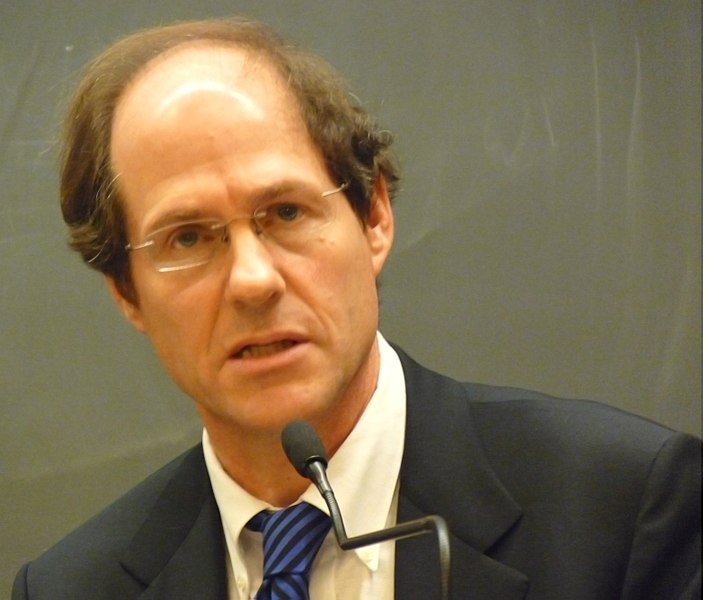Chambliss Placing Hold on Sunstein Nomination
by Matthew Madia, 6/30/2009
The Hill has identified Saxby Chambliss (R-GA) as the Senator who has placed a hold on the nomination of Cass Sunstein, President Obama’s pick to head the White House Office of Information and Regulatory Affairs (OIRA). The Hill outlines Chambliss’s concerns:
Chambliss told The Hill that he has blocked Sunstein’s nomination because the law professor “has said that animals ought to have the right to sue folks.”
Indeed, in his 2004 book, Animal Rights: Current Debates and New Directions, Sunstein wrote: “I will suggest that animals should be permitted to bring suit, with human beings as their representatives, to prevent violations of current law.”
[…]
An aide to Chambliss said the senator is also concerned by Sunstein’s suggestion during a 2007 speech that hunting should be banned.
 Sunstein was approved last month by the Homeland Security and Governmental Affairs Committee. During his nomination hearing, Ranking Member Susan Collins (R-ME) also raised the issue of animal rights. Sunstein said he thought the issue would be beyond his purview as OIRA administrator and appeared to satisfactorily allay Collins’ concerns. He also said some of his academic writings and remarks on the subject were meant to provoke.
Sunstein was approved last month by the Homeland Security and Governmental Affairs Committee. During his nomination hearing, Ranking Member Susan Collins (R-ME) also raised the issue of animal rights. Sunstein said he thought the issue would be beyond his purview as OIRA administrator and appeared to satisfactorily allay Collins’ concerns. He also said some of his academic writings and remarks on the subject were meant to provoke.
But beyond Sunstein’s word, his position as OIRA administrator would not imbue in him the authority to give animals the right to sue. OIRA is the White House office responsible for overseeing federal agencies’ regulatory activity. The office reviews and sometimes edits the text of regulations, and it approves government forms and surveys that require the public to divulge information. The OIRA administrator holds the power to transform regulatory policy at the federal level, but he or she cannot affect judicial determinations such as who, or what, has standing to sue.
Hunting, on the other hand, could be a regulatory issue. However, I doubt the administration would expend the political capital required to limit hunting activities, regardless of Sunstein’s beliefs.
As Carter Wood at the Manhattan Institute blog points out, Chambliss and other conservatives may want to be careful about too forcefully lodging complaints over Sunstein. Sunstein has not received a lot of praise from public interest groups for a number of reasons. He supports cost-benefit analysis, a controversial tool in which difficult-to-count benefits, such as lives saved or injuries avoided, are weighed against compliance costs. He opposes the precautionary principle, a theory that basically says, when it comes to chemicals or workplace hazards for which the scientific picture is not complete, “better safe than sorry.” He also, not surprisingly, favors a strong role for OIRA. OMB Watch and many other groups have called on the Obama administration to scale back OIRA’s power, citing numerous instances in which the office has weakened or delayed public protections.
Wood goes so far as to rhetorically ask, “Who could possibly be better in this Administration from the standpoint of regulatory restraint?” While I personally don’t think Sunstein will restrain regulation – like the Bush administration did by basically turning off the regulatory spigot – he could prove to be a moderating force when reviewing regulations that seek to aggressively protect the public.
According to The Hill, “Chambliss said he would not lift his hold until he had a chance to ask Sunstein to explain his views in a meeting after the July 4 recess.” Stay tuned for updates.



